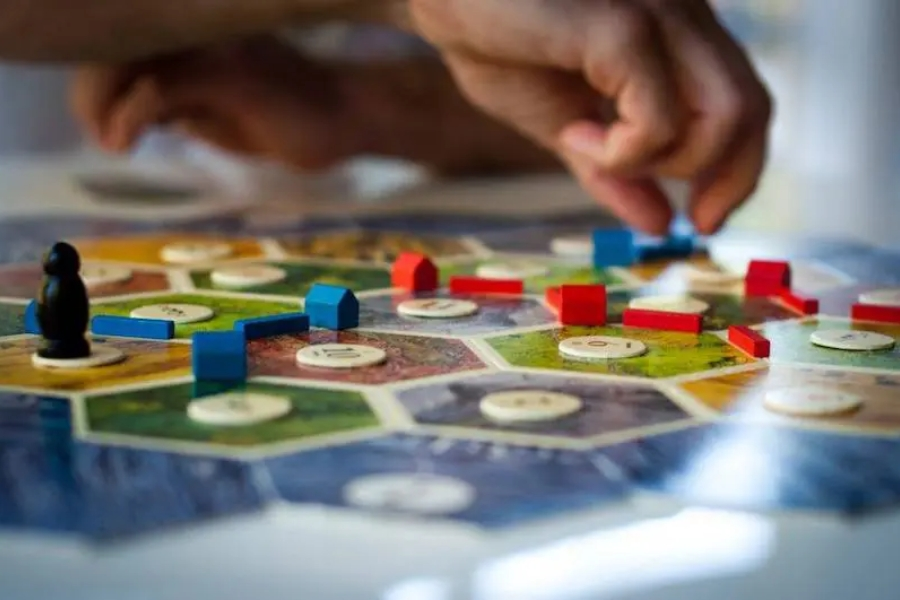
Parents want to provide the best educational experiences for their children. That’s why educational games have become increasingly popular over the years. Combining the principles of science and play, these toys provide the perfect balance of fun and learning for your child. From STEM games that teach coding and robotics to imaginative play sets that foster creativity and problem-solving skills, educational games have something for every child and every age. In this article we will explore why educational games are an essential addition to your child’s educational journey and how they can help enhance their cognitive, social and emotional growth. If you’re looking for ways to enhance your child’s learning experience and keep them engaged and motivated,
Introduction to educational games
Educational games are toys that have been designed to help children learn while having fun. They are designed to develop children’s cognitive, social and emotional skills through play. Educational games can range from learning letters and numbers for younger children, to STEM games for older children that teach coding and robotics.
There are many reasons why educational games are an essential addition to a child’s education. One of the main reasons is that educational games provide an opportunity to learn through play. Children love to play, and when they are engaged in educational play, they are more likely to be engaged and motivated to learn.
Additionally, educational games can help children develop important social and emotional skills such as sharing, collaborating, and conflict resolution. Children can also learn to be independent and take responsibility for their own actions while playing educational games. These social and emotional skills are essential for success in life, and playing educational games can help develop them.
The importance of play in children’s development
Play is essential in children’s development. Through play, children can develop their motor, cognitive, social and emotional skills. The game also provides an opportunity for children to explore the world around them and experience new things.
Also, the game is a source of fun and enjoyment for children. When children play, they feel happy and satisfied. Play is also a source of stress relief for children. Children can use play as a form of outlet for negative emotions such as anger and frustration.
Play is also an opportunity for children to develop their imagination and creativity. When children play, they can use their imagination to create imaginary worlds and situations. This skill of imagination and creativity is essential for success in life and play can help develop it.
Advantages of educational games for children
There are many benefits of using educational games for kids. One of the main benefits is that educational games provide an opportunity for children to learn through play. Children are naturally curious and when they play educational games, they can learn new things in a fun and engaging way.
Additionally, educational games can help children develop important cognitive skills such as problem solving, critical thinking, and creativity. Educational games can also help children develop social and emotional skills such as sharing, collaborating and resolving conflicts.
Another benefit of educational games is that they can help set children up for success in life. Children who play educational games are more likely to develop skills such as perseverance, responsibility and self-confidence. These skills are essential for success in life.
Examples of educational games for different ages
There are many educational games available for children of all ages. Here are some examples of educational games for different ages:
- Games for Preschoolers: These educational games often teach letters, numbers and other basic skills. For example, there are letter puzzles, memory games, and building games for preschoolers.
- Games for school-aged children: For older children, there are educational games that teach skills like math, science, and history. For example, there are math games, science games, and story games for school-aged children.
- STEM Games: These educational games teach kids coding and robotics skills. For example, there are coding games and robotics games for older children.
- Imaginative Playset: These educational games encourage creativity and problem solving. For example, there are farm, dinosaur and city playsets for kids of all ages.
How educational games support STEM learning
Educational games are a great resource for STEM learning. STEM is an acronym for science, technology, engineering and mathematics. STEM learning is important because these skills are essential for success in life and career.
Educational games can help children learn STEM skills in a fun and engaging way. For example, coding games can teach children how to code and create programs. Robotics games can teach kids how to build robots and program them to perform tasks.
Additionally, educational games can help children develop important problem solving and critical thinking skills. These skills are essential to STEM learning, and playing educational games can help develop them.
The role of parents in choosing educational games
Parents play an important role in choosing educational games for their children. Parents should choose educational games that are appropriate for their child’s age and developmental level. Also, parents should choose educational games that are fun and engaging for their child.
Parents should also look for educational games that teach important skills like problem solving, critical thinking, and creativity. Parents should also look for educational games that encourage collaboration and sharing.
Finally, parents should choose educational games that are safe and of high quality. Parents should check toy labels to make sure they are safe for their child and should look for educational toys that are high quality and built to last.
Tips for choosing the right educational game
There are some tips that parents can follow to choose the right educational game for their child. Here are some tips:
- Choose educational games that are appropriate for your child’s age and developmental level.
- Choose educational games that are fun and engaging for your child.
- Choose educational games that teach important skills like problem solving, critical thinking, and creativity.
- Choose educational games that encourage collaboration and sharing.
- Check the labels on toys to make sure they are safe for your child.
- Choose high quality educational games that are built to last.
Educational game brands to consider
There are many educational toy brands to consider when choosing an educational toy for your child. Here are some educational game brands to consider:
- LEGOs: LEGO building toys are a great resource for STEM learning.
- LeapFrog: LeapFrog produces educational games for children of all ages.
- Crayola: Crayola makes educational games that encourage creativity and imagination.
- Fisher-Price: Fisher-Price makes educational games for children of all ages.
- ThinkFun: ThinkFun produces educational games that teach problem solving and critical thinking skills.
Combine technology with educational games
Technology can be a great resource for children’s learning. There are many educational games that use technology to teach STEM skills and other important skills. For example, there are coding games and robotics games that use technology to teach kids how to code and build robots.
However, it’s important to remember that technology should be used in a balanced way with traditional gaming. Children still need to play traditional games such as puzzles and construction games to develop their motor and cognitive skills.
Conclusion: The power of educational games to improve children’s education
Educational games are an essential addition to a child’s education. They provide an opportunity for children to learn through play and develop important cognitive, social and emotional skills. Educational games can also help children set themselves up for success in life and career.
Parents have an important role in choosing educational games for their children. They should choose educational games that are appropriate for their child’s age and developmental level and that teach important skills such as problem solving, critical thinking, and creativity.
Educational games can be combined with technology to create an even more engaging and fun learning experience. However, it is important to remember to use technology in balance with traditional play.
In conclusion, educational games are a great resource for children’s education. They provide an opportunity for children to learn through play and develop important cognitive, social and emotional skills. Choosing the right educational toy for your child can make all the difference in their growth and development.





